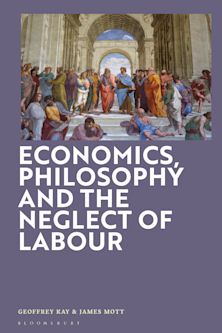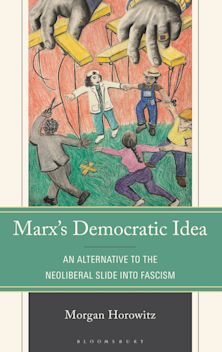- Home
- ACADEMIC
- Philosophy
- Social and Political Philosophy
- Feminist Human Rights
This product is usually dispatched within 1 week
- Delivery and returns info
-
Free CA delivery on orders $40 or over
You must sign in to add this item to your wishlist. Please sign in or create an account
Description
In Feminist Human Rights: A Political Approach, Kristen Hessler argues that the proper task of philosophical human rights theory is to theorize the multiple, contested moral visions of human rights that animate the practice itself. Drawing on a broadly pragmatist methodology, Hessler demonstrates that unjust social hierarchies concealed by entrenched ideologies can be exposed by the activism of marginalized groups for their own human rights, and the resulting understandings of human rights morality can then be realized in law. This more inclusive process both overcomes a significant obstacle to fulfilling human rights in practice and contributes to a fuller theoretical understanding of human rights morality in the abstract. Hessler closely analyzes an extended case study of the jurisprudence on crimes of rape and sexual violence in the ad hoc international criminal tribunals for Rwanda and the former Yugoslavia. By centering the voices of women testifying about their experiences of violence, and insisting that their experiences deserved accountability, the tribunals initiated a process of legal and social reform. This complex process constitutes a form of social moral discovery that illuminates human rights morality in light of long-ignored realities of women’s experiences.
Table of Contents
Chapter 2: Towards a Political Philosophy of Human Rights
Chapter 3: Structural Equality
Chapter 4: Case Study: Prosecutor v. Akayesu
Chapter 5: Structural Inequality and Hermeneutical Injustice
Chapter 6: Engaged Moral Inquiry
Product details
| Published | Jun 20 2023 |
|---|---|
| Format | Hardback |
| Edition | 1st |
| Extent | 190 |
| ISBN | 9781498592307 |
| Imprint | Lexington Books |
| Dimensions | 237 x 159 mm |
| Series | Feminist Strategies: Flexible Theories and Resilient Practices |
| Publisher | Bloomsbury Publishing |
About the contributors
Reviews
-
Kristen Hessler persuasively argues that the practice of human rights can and must be viewed as a source of moral knowledge. The book offers an elegant, much-needed reimagining of the relationship between philosophical theorizing and human rights and of the role of moral theory in human rights practice. Feminist Human Rights: A Political Approach gives one of the clearest and most useful overviews of the dominant approaches to human rights in philosophical literatures out there. Using a self-consciously feminist methodology Hessler effectively explains both why the dominant approaches are so attractive to so many and why a comprehensive reimagining of these approaches is necessary. Hessler dismantles both the conceit that a “purely theoretical” conception of the moral underpinning of human rights is possible or desirable and the misconception that any concept intended to guide action – like a human right – can be adequately theorized without critical moral reflection. Hessler’s use of examples from international humanitarian law demonstrates the value of feminist practice and methodology for human rights. In championing the conceptual significance of how human rights are used, modified, and expanded by practitioners and social movements, Hessler makes a persuasive case for a practice-based, genuinely interdisciplinary approach to normative theorizing.
Cindy Holder, University of Victoria
-
Kristen Hessler’s book is an important contribution to the philosophy of human rights, and appeals to a wide, interdisciplinary audience. The book is especially affective in arguing that, to better illuminate the theory and practice of human rights, philosophers should work in close contact with legal scholars, social scientists, and activists.
Pablo Gilabert, Concordia University
-
Feminist Human Rights: A Political Approach envisions a process of moral discovery where philosophers and practitioners of human rights engage in a common moral discourse to reach a full understanding of human rights. While most philosophical inquiries keep social and political realities at arm’s length, Kristen Hessler provides a skillful account of the complementary relationship between theory and practice in the specification of human rights norms. With a careful study of the prosecution of sexual crimes in international criminal tribunals, Hessler makes the compelling case that the voices of marginalized groups, victims and activists working in the trenches of social and legal reform are essential to the production of moral knowledge. Hessler brings a significant methodological innovation to the philosophy of human rights and exposes the epistemic risks of theorizing about human rights independently of the moral insights emerging from the practice. This book offers an inspiring model of theoretical research that successfully integrates strong commitments to both moral truth and moral progress
Eun-Jung Katherine Kim, Wayne State University

ONLINE RESOURCES
Bloomsbury Collections
This book is available on Bloomsbury Collections where your library has access.



































